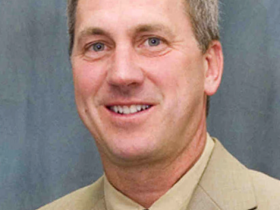Why Reform of Unemployment Comp Failed
Health care lobbyists kill bill that would have cut program's medical costs.
It has the makings of a Greek tragedy, where the flawed protagonist unwittingly becomes the agent of unanticipated disaster.
Last fall state legislators forcefully urged the Wisconsin Worker’s Compensation Advisory Council to rein in related medical costs. These have risen more rapidly in Wisconsin than other states and constitute the lion’s share of payments made under the state’s program for those injured or disabled at work.
“It is our belief that any council package, at a minimum, should keep Wisconsin’s medical costs from increasing more than the median state average,” declared a Sept. 30 letter to the council signed by nine Republican state legislators including Rep. Dan Knodl, R-Germantown, chair of the Assembly Committee on Labor.
Assembly Speaker Robin Vos, R-Rochester, also decried the rising cost, warning that if the council “can’t reach some consensus, the Legislature might have to act.” That’s an unsettling prospect, especially since this area of lawmaking has operated smoothly for decades with minimal legislative involvement.
Every two years the council, with five voting members from both management and labor, crafts a package of agreed-on changes to the worker’s compensation program. The resulting bill has historically received unanimous legislative support, according to the state Department of Workforce Development.
As lawmakers wanted, the council did address the cost issue, and it did reach consensus. The agreed-on bill, AB 711, which Knodl introduced Jan. 31, directed DWD to establish a fee schedule for services to injured employees. Providers could charge no more than 10 percent above the average paid by state group health plans.
Committee co-chair Jeffrey Beiriger, representing management, says 43 states already have medical fee schedules for their worker’s compensation programs. Co-chair Stephanie Bloomingdale of the state AFL-CIO, representing labor, calls the proposal embraced by the council “common sense” and “fair.”
Moreover, the savings would go to increase program benefits. For instance, the maximum for a person receiving permanent partial disability would rise from $322 to $337 a week. Long-dormant rates for some severely disabled workers would also increase. And there would be potential cost savings for employers.
“We were very proud of the process and outcome,” Beiriger says. “We did what was asked of us.”
“When I saw that number, I thought, ‘You’ve got to be kidding me,’ ” says Mark Grapentine, lobbyist for the Wisconsin Medical Society. “How could you think there would not be ramifications to that?”
Grapentine faults the process, saying “Both sides decided to agree on a proposal that has deleterious effects for a third entity that wasn’t at the table: the health care world.”
Bloomingdale disputes this, saying health care providers had numerous opportunities for input, but failed to propose anything that would achieve the savings they felt Republican lawmakers were clamoring for.
The Medical Society and others mobilized against the bill. What ensued was a massive behind-the-scenes clash of special interest titans.
Within two weeks, more than 50 state lobby groups had staked out positions on the bill, about half in favor and half against. Proponents include Manufacturers & Commerce and other business groups, insurers and labor unions. Opponents include groups representing doctors, hospitals and other health care providers.
Faced with this blowback from health care providers, lawmakers brought the curtain down. The normally routine bill appears dead this session, meaning nothing can pass until next January at the earliest. That means no cost savings, no increases for injured workers, no breaks for businesses.
“It really is a shame,” Bloomingdale says. “A lot of people are going to be harmed because this bill was not passed.” Agrees Beiriger, “The only real winners in all this are the medical providers.”
Rep. Knodl, through an aide, declined comment. The council co-chairs vow to keep trying. Says Grapentine, “We’ll see what the bill next session looks like.”
Bill Lueders is the Money and Politics Project director at the Wisconsin Center for Investigative Journalism (www.WisconsinWatch.org). The Center produces the project in partnership with MapLight.
The Center collaborates with Wisconsin Public Radio, Wisconsin Public Television, other news media and the UW-Madison School of Journalism and Mass Communication. All works created, published, posted or disseminated by the Center do not necessarily reflect the views or opinions of UW-Madison or any of its affiliates.
-
Legislators Agree on Postpartum Medicaid Expansion
 Jan 22nd, 2025 by Hallie Claflin
Jan 22nd, 2025 by Hallie Claflin
-
Inferior Care Feared As Counties Privatize Nursing Homes
 Dec 15th, 2024 by Addie Costello
Dec 15th, 2024 by Addie Costello
-
Wisconsin Lacks Clear System for Tracking Police Caught Lying
 May 9th, 2024 by Jacob Resneck
May 9th, 2024 by Jacob Resneck























Oh, just wait until the next Republican dominated session. AFTER hospitals, doctors and medical providers have filled Republican campaign coffers. THEN, WisGOP will ram through a bill that cuts to the bone any reimbursements for the medical profession…and continue to accept large donations from health insurers and private businesses. One by one, WisGOP is attacking workers…starting with minimum wage employees…working their way through teachers…and ending up with professionals like medical providers. The only ones who will end up unscathed are the insurance companies and private businesses.
Hey! We are almost to the point of fascism! Almost. Just have to get those pesky doctors to take less money from insurance companies and businesses.
Are we there yet, Mom? Are we there yet, Dad? Whoopeeeeeeee!